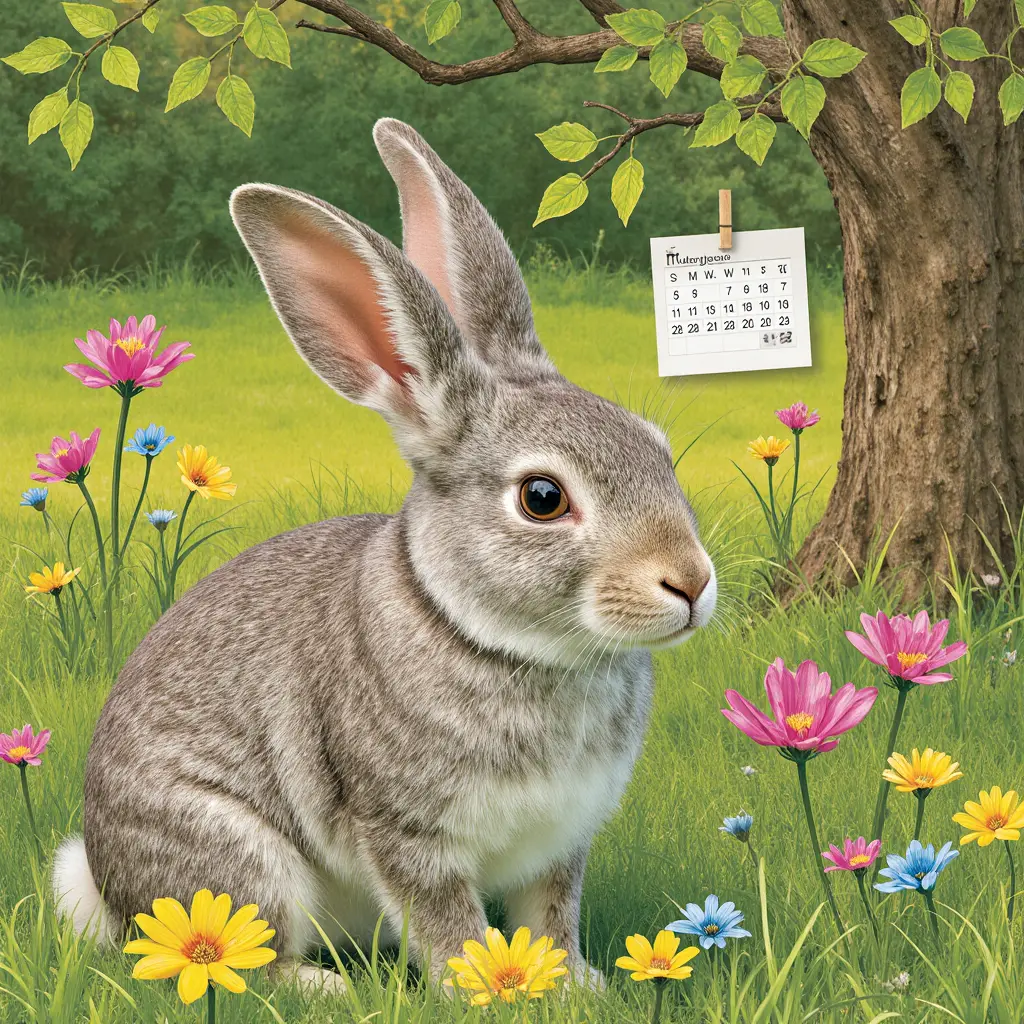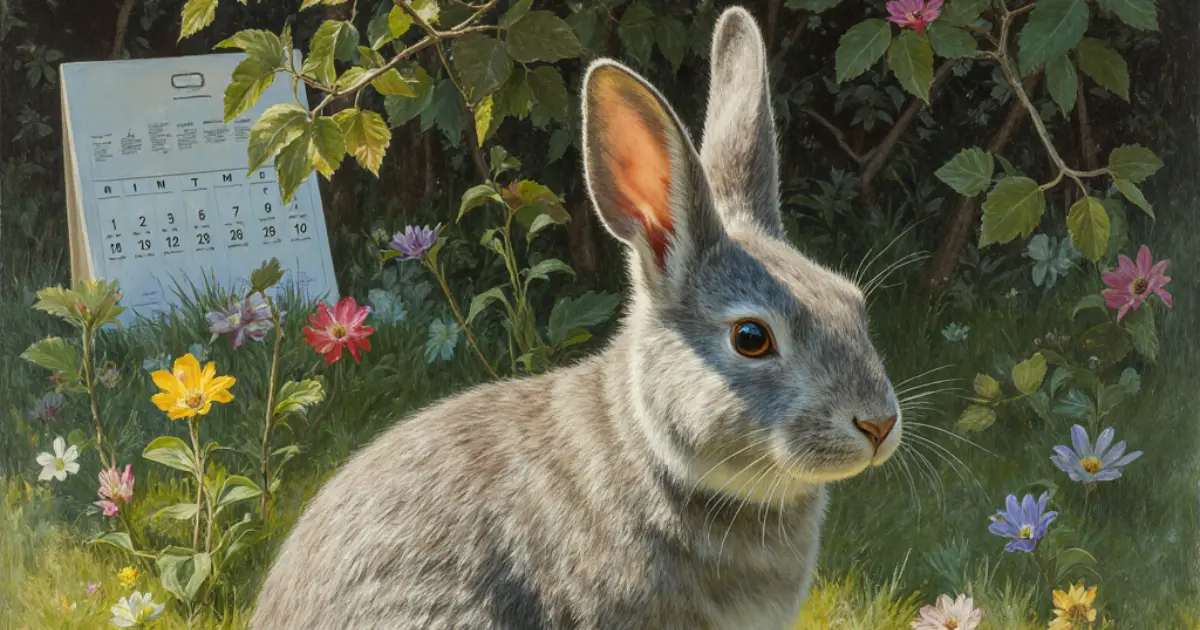How Long Do Bunnies Live Average Lifespan
When Your Bunny Hops into Your Heart
You probably remember the first time you saw those big, round eyes and twitching nose. Bringing a bunny into your home isn’t just about owning a pet—it’s about inviting in a companion, a friend, even a quiet therapist. But eventually, one tender question crosses your mind: how long do bunnies live?
Understanding your rabbit’s average lifespan is about more than curiosity—it’s about being the best caretaker you can be. This guide walks you through everything you need to know to help your furry friend enjoy a long, healthy, and joy-filled life.

Table of Contents
What Is the Average Lifespan of a Bunny?
The lifespan of a rabbit can vary significantly depending on its environment and genetics. Domestic rabbits, especially those kept indoors, tend to live much longer than their wild cousins.
- Pet rabbits: Generally live between 8 to 12 years, with some reaching up to 14 years or more.
- Wild rabbits: Face predators, disease, and harsh climates. Most only survive 1 to 3 years.
Your bunny’s breed also plays a role in longevity. Smaller breeds tend to outlive larger ones, so knowing your rabbit’s background can give you an early clue about what to expect.
What Factors Affect a Bunny’s Lifespan?
Several elements can influence your bunny’s lifespan. Paying attention to these factors can drastically improve the quality and duration of your rabbit’s life.
1. Breed and Genetics
- Mini Rex, Netherland Dwarf, and Polish rabbits often live longer.
- Larger breeds like the Flemish Giant may have shorter lifespans due to health complications.
- Hereditary issues (like dental malocclusion or heart disease) can be passed down through poor breeding practices.
2. Diet and Nutrition
What your bunny eats has a direct effect on their health.
- 80% hay is the golden rule. Hay keeps their gut moving and their teeth trimmed.
- Leafy greens like romaine, cilantro, and parsley add important nutrients.
- High-quality pellets in moderation.
- Treats? Yes, but sparingly—especially fruits.
Table: Ideal Bunny Diet Breakdown
| Food Type | Percentage of Diet | Examples |
|---|---|---|
| Hay | 80% | Timothy, orchard, meadow hay |
| Fresh Vegetables | 10-15% | Romaine, parsley, cilantro |
| Pellets | 5-10% | High-fiber, plain pellets |
| Treats | <2% | Apple slices, berries |
3. Living Environment
- Indoor bunnies generally live longer due to reduced risks (predators, accidents, disease).
- Clean, roomy enclosures with soft flooring protect paws and joints.
- Daily free-roaming time is a must.
- Temperature control (rabbits don’t handle heat well).
4. Vet Care and Preventive Health
- Find an exotic vet experienced in rabbit care.
- Regular check-ups prevent silent illnesses like GI stasis or dental issues.
- In some countries, vaccinations against Myxomatosis and Rabbit Hemorrhagic Disease are required.
How to Help Your Bunny Live Longer: Practical Tips
Creating a consistent, nurturing care routine can significantly lengthen your rabbit’s life.
Daily Care Checklist
- ☑ Clean litter box
- ☑ Fresh hay and water daily
- ☑ Quick physical check for bumps, discharge, or odd behavior
- ☑ Rotate toys to keep them mentally active
Mental Stimulation and Bonding
- Rabbits thrive when mentally engaged.
- Offer chew toys, tunnels, and cardboard puzzles.
- Spend quality time petting or playing.
- Consider adopting a bonded pair for companionship.
Lifespan by Bunny Breed (Quick Reference Table)
| Breed Name | Average Lifespan | Size Category |
|---|---|---|
| Holland Lop | 7–10 years | Small |
| Mini Rex | 8–12 years | Medium |
| Flemish Giant | 5–8 years | Large |
| Lionhead Rabbit | 7–10 years | Small |
| Dutch Rabbit | 6–9 years | Medium |
Life Stages of a Bunny (From Kit to Senior)
Understanding your bunny’s life cycle helps you provide age-appropriate care.
Baby/Kits (0–3 months)
- Eyes open at ~10 days
- Nursing and heat regulation are vital
- Very fragile at this stage
Juvenile (3–6 months)
- Rapid growth period
- Introduction to adult diet
- Litter training and social habits start forming
Adult (6 months–5 years)
- Peak health and energy
- Routine medical and dental check-ups essential
- Sexual maturity reached—spaying/neutering recommended
Senior (5+ years)
- Mobility may decrease
- Adjust diet to account for metabolism changes
- Biannual vet visits recommended
FAQ – How Long Do Bunnies Live? (And More)
How long do bunnies live as pets?
With proper care, most domestic rabbits live 8 to 12 years, especially when kept indoors.
Do wild rabbits live as long as pet rabbits?
Not even close. Wild bunnies often die young, averaging just 1 to 3 years due to predators and disease.
Can a bunny live longer than 12 years?
Yes! With excellent care, some bunnies live up to 14 years or more. The oldest recorded rabbit lived to 18 years!
Does neutering/spaying affect a bunny’s lifespan?
Absolutely. Fixed rabbits are less prone to reproductive cancers and hormonal aggression, which often adds years to their life.
What signs suggest my bunny is aging?
- Reduced mobility
- Thinning fur
- Appetite or litter habits changing
- Increased napping or hiding
Conclusion: Your Bunny’s Life Is in Your Hands
Your rabbit depends on you not just for food and shelter, but for love, enrichment, and health care. The answer to how long do bunnies live? isn’t fixed in stone—it depends a lot on how well you nurture your bunny.
From choosing the right diet and creating a bunny-proof space, to providing companionship and staying on top of vet visits, you’re in control of your rabbit’s future.
Because when you love a bunny right, they give you all their gentle heart—for as long as they can.

